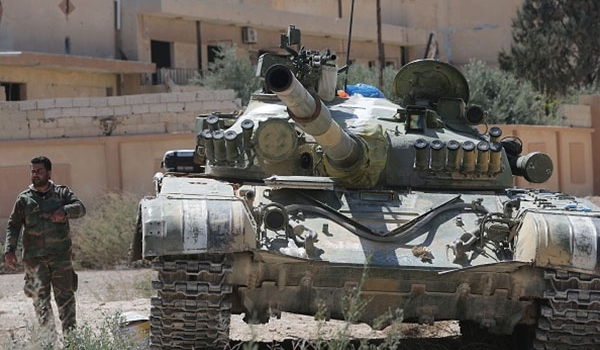
RNA - When the US and Russia agreed to negotiate a peace process in Syria, the goal was not to have a transitional government in place by August 1. It wasn’t about President Bashar al-Assad surrendering power by then either. This was never explicitly mentioned in the deal, or in the UN Security Council endorsement of the deal.
As maintained by Moscow, the plan all along was to get a unity government in place to defeat terrorism and prepare for free elections - in which Syrian voters will decide who will be in power.
Now American media outlets would like us to believe otherwise, but it’s not. After five years, the regime changers are still stuck in Syria. The ongoing attempts to play for time in peace talks are also motivated primarily by their interests and not the interests of the Syrian people. In all this, the war on Syria is also a “resource war” sold to the international community under false democratic pretenses.
This is not something new though. The US officials are motivated by some incentive other than fighting terror and spreading democracy. They would not be spending billions of dollars to build military bases in Syria and escalate the war unless they perceived that the expense was somehow justified - since August 2014, more than $11 million a day in military operations.
A basic understanding of history and economics demonstrates that the new escalation and drawn-out occupation of Syria has much more to do with the US securing permanent access to the region’s natural resources. It is designed to protect the petrodollar system. Protecting the current “dollars for oil” arrangement requires the US to control and regulate the region’s flow of natural gas resources to Europe as well.
To this end, Europe absolutely also needs the Qatar gas pipeline through Saudi Arabia and Syria to gain energy independence from Russia. That also happens to be a major US goal as it ratchets up its role there. And that also portends perennial trouble for the Syria peace process.
That explains why the US still insists on selecting and sending various terrorist groups to the peace talks; it is no longer eager to assume responsibility for the political process – three unsuccessful rounds so far. Instead, the US has intensified the strategy of upping its military footprint there, will full backing from regional vassals. These puppet regimes actively do the bidding of Western interests and are compensated in exchange for creating failed states and eliminating rivals. As appalling as it may be, this is what it is, even as they vie for different political outcomes.
But this has all changed in recent months. The war on Syria is a war they can’t win. The counter-terror Alliance of Iran, Syria, Russia and Hezbollah is advancing on all fronts, and for the first time, ISIL no longer seems invincible. On the other hand, the Alliance doesn’t want what Washington does offer in the peace process: Endless war, colonial carve-ups, undoing old borders, and regional provisions for military and energy domination.
For sure, the Alliance members have every intention to rally public will in the current environment as well: these are the Syrian people who should decide their fate, not the War Party, and certainly not its expendable partners in crime.
R۱۱۱/۱۰۸/C/